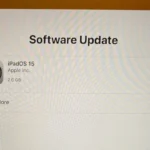Protecting your private information is important. To keep your identity and location secret when sending emails, you can use various methods such as VPNs, burner emails, and encrypted services. These tools help ensure your online privacy and security. Sending anonymous emails allows you to communicate securely, safeguarding your identity and personal information. This is essential if you need to share sensitive information or express your opinions without fear of consequences. There are many services that offer anonymity, each with its own benefits and risks. It’s important to understand how each one works and the level of privacy it provides. By using these services correctly, you can send emails without revealing your identity.
Achieving Online Privacy: A Guide to Anonymous Emails

Why Send Anonymous Emails?
Anonymity protects your privacy. You may want to:
- Whistle-blow on illegal activities.
- Share sensitive information without revealing your identity.
- Express opinions without fear of backlash.
- Protect yourself from spam or unwanted replies.
Methods for Sending Anonymous Emails
Burner Email Accounts
- Create temporary email addresses for specific purposes.
- Use different providers for added anonymity.
Masked Email Services
- Forward emails through a third-party service.
- Hide your real email address from the recipient.
Encrypted Email Providers
- Offer end-to-end encryption for secure communication.
- Ensure only the intended recipient can read your message.
Anonymous Webmail Services
- Access email through a web browser.
- No need to install software or create an account.
Additional Tips for Anonymity
- Use a VPN (Virtual Private Network) to mask your IP address.
- Avoid sharing personal information in the email.
- Use a public Wi-Fi network for extra anonymity.
Important Considerations
- Anonymity doesn’t guarantee complete untraceability.
- Use anonymous emails responsibly and ethically.
| Method | Pros | Cons |
|---|---|---|
| Burner Email Accounts | Easy to create, free | Limited features, less secure |
| Masked Email Services | Hides your real email address | May require payment |
| Encrypted Email Providers | High security, privacy focus | Less user-friendly |
| Anonymous Webmail Services | Convenient, no registration needed | Limited functionality |
Key Takeaways
- Anonymous email services can hide your identity and location.
- Different methods offer various levels of privacy and security.
- Understanding these methods helps you pick the best option.
Understanding Anonymous Email Services
Anonymous email services help users protect their identity and privacy while communicating online. This section will cover how to choose the right service, protect your identity, and understand the technical aspects of sending anonymous emails.
Choosing the Right Anonymous Email Service
Selecting an anonymous email service depends on your needs. If you want security and privacy, look for services like ProtonMail and Tutanota. They offer end-to-end encryption and no-log policies. ProtonMail, for instance, is known for its solid encryption and security features.
If you need a temporary email, consider using Guerrilla Mail or SimpleLogin. These services provide burner email addresses that expire after a set time. This can be useful for signing up for websites or newsletters without sharing your real email. Always check if the service supports Android and iOS for convenience.
Protecting Your Identity and Privacy
Using a VPN or the Tor Browser can help hide your IP address. This adds an extra layer of security by encrypting your internet connection. A VPN, like those offered by NordVPN or ExpressVPN, routes your internet traffic through a secure server. This makes it harder for anyone to track your online activity.
Consider services with a strong no-log policy. This means the service does not store any information about your activity. Using a combination of anonymous email services and VPNs enhances your privacy, protecting sensitive information from prying eyes.
Technical Aspects of Sending Anonymous Emails
An anonymous email hides your personal information, like your name and IP address. Encrypted email providers like ProtonMail use end-to-end encryption. This means only the sender and receiver can read the message. Encryption methods like PGP (Pretty Good Privacy) add an extra layer of security to emails.
Email aliasing services like SimpleLogin let you create multiple email addresses without revealing your primary one. These aliases can be useful for managing different contacts. Other services offer expiring messages that delete themselves after being read, adding to confidentiality.
Using a password manager can help manage your different accounts securely. It keeps track of strong, unique passwords for each service. Always update your software to protect against new security threats. Proper use of these technical tools ensures safer communication.







